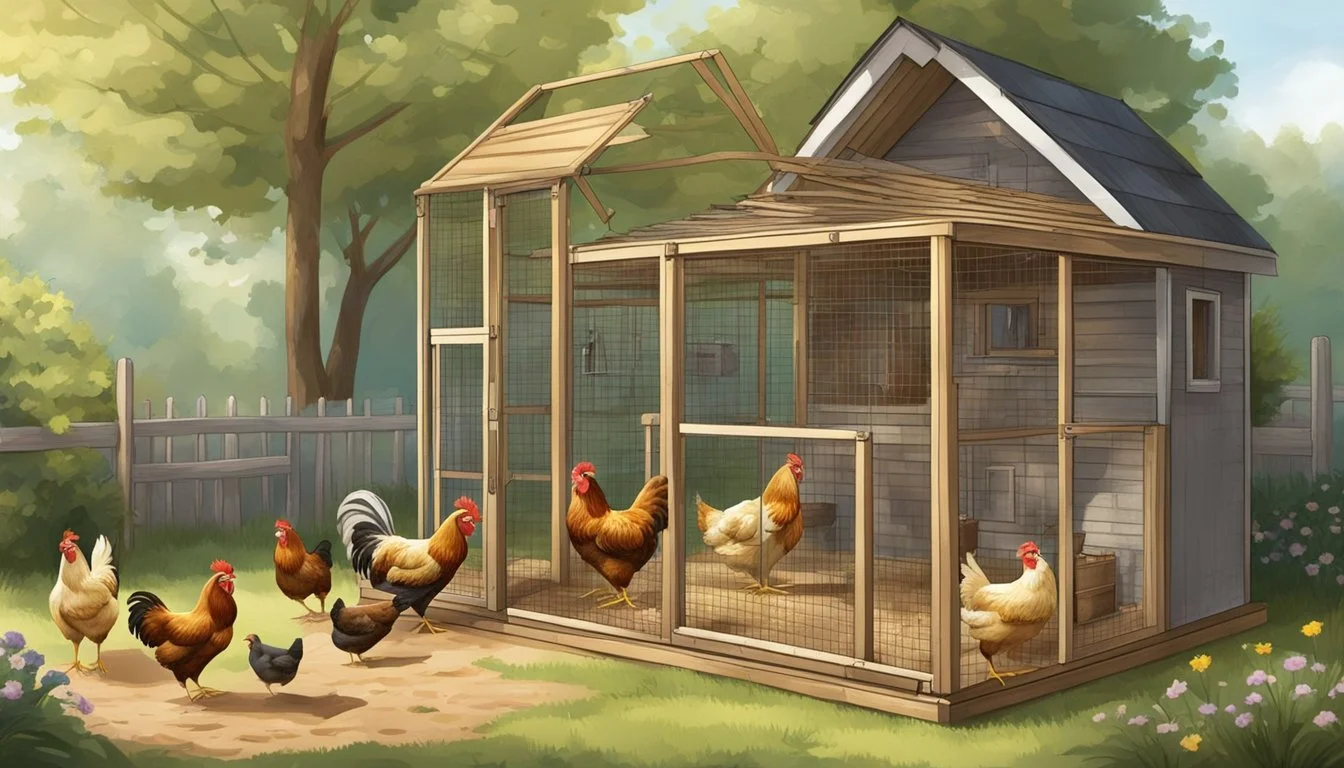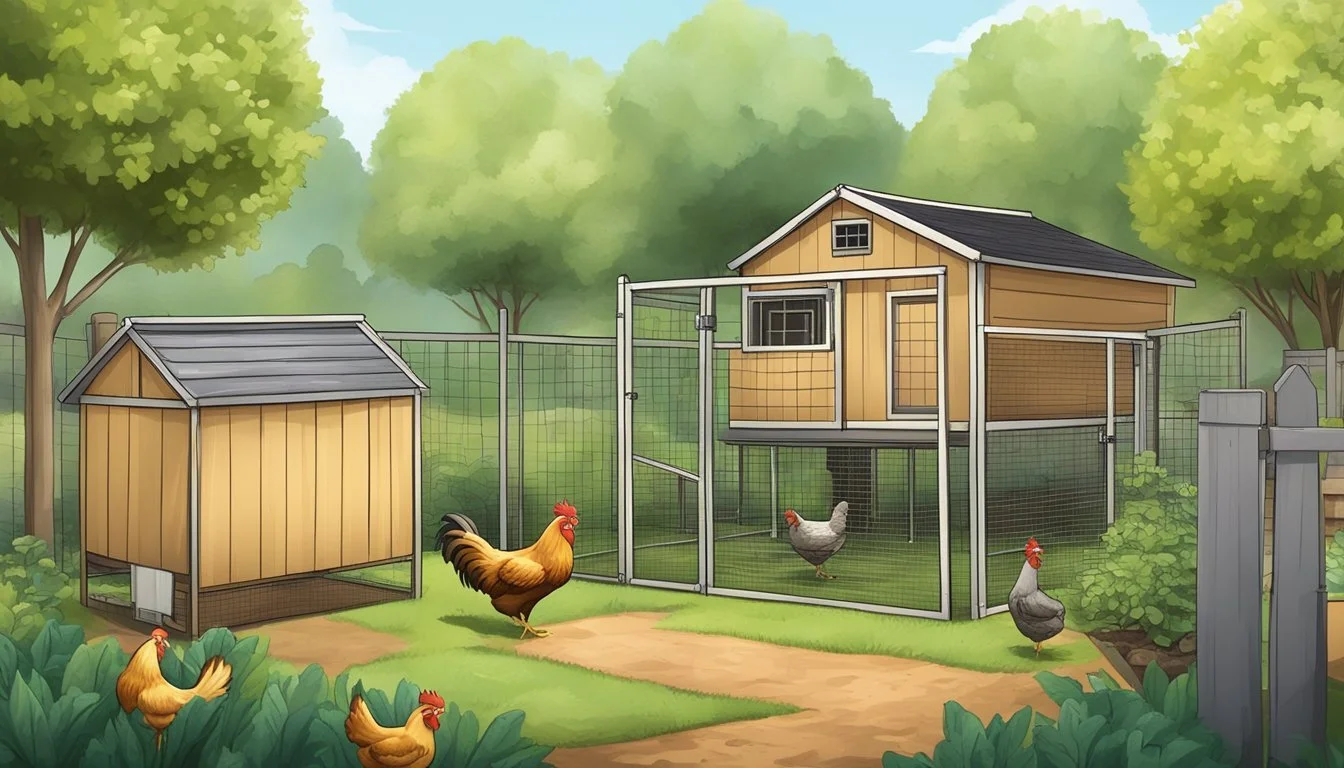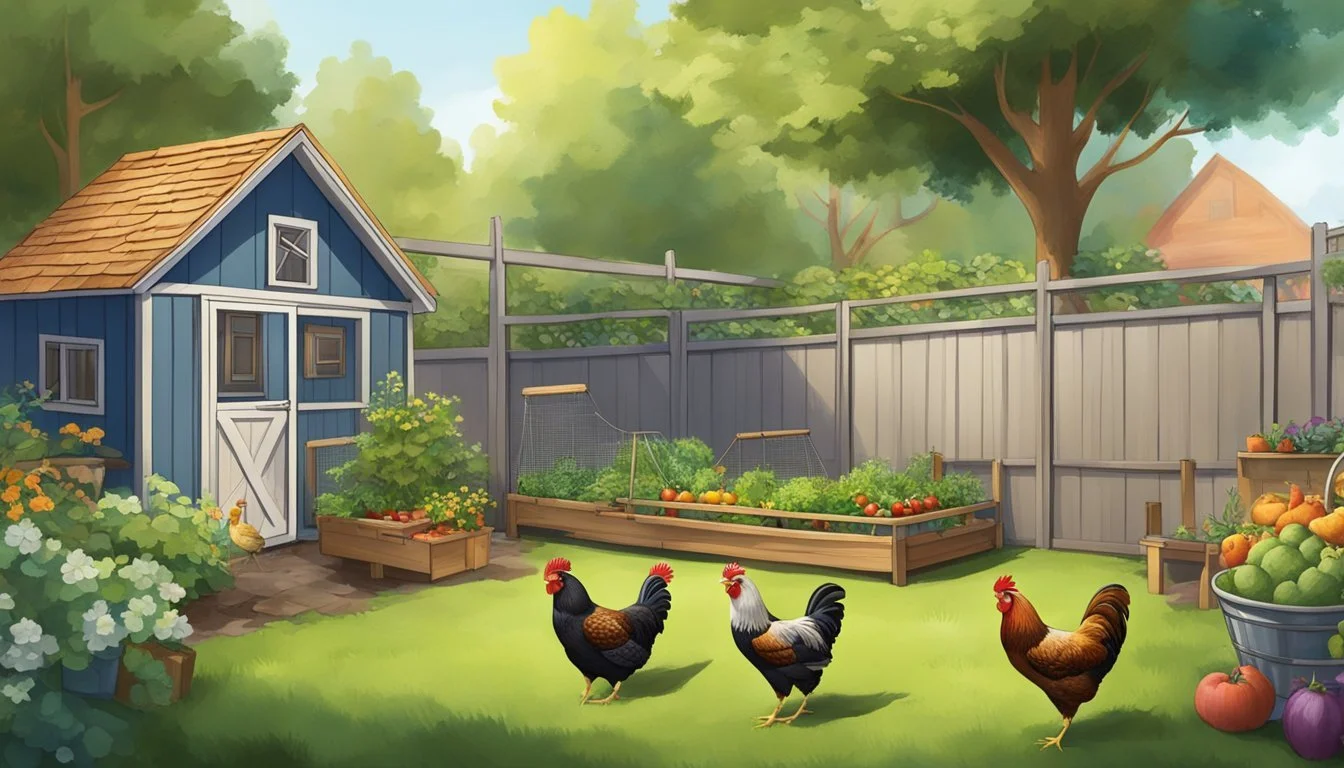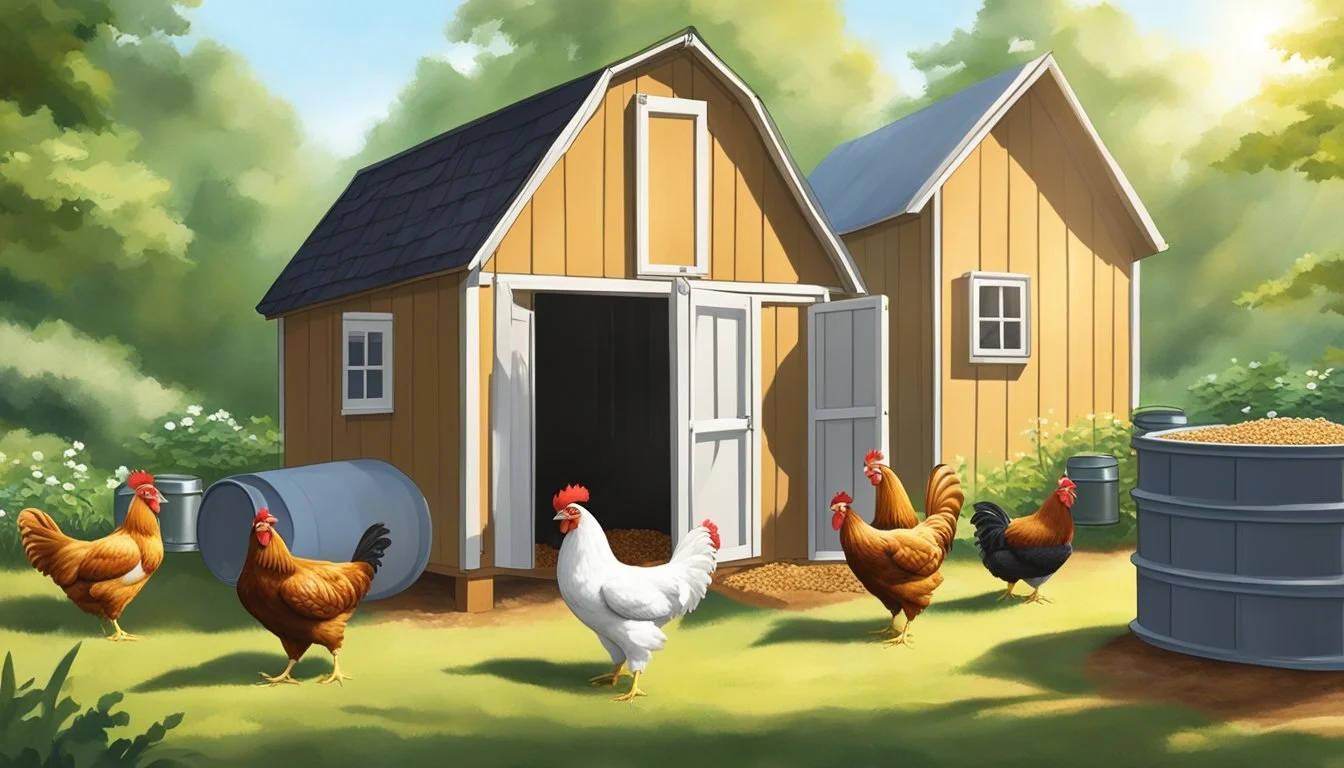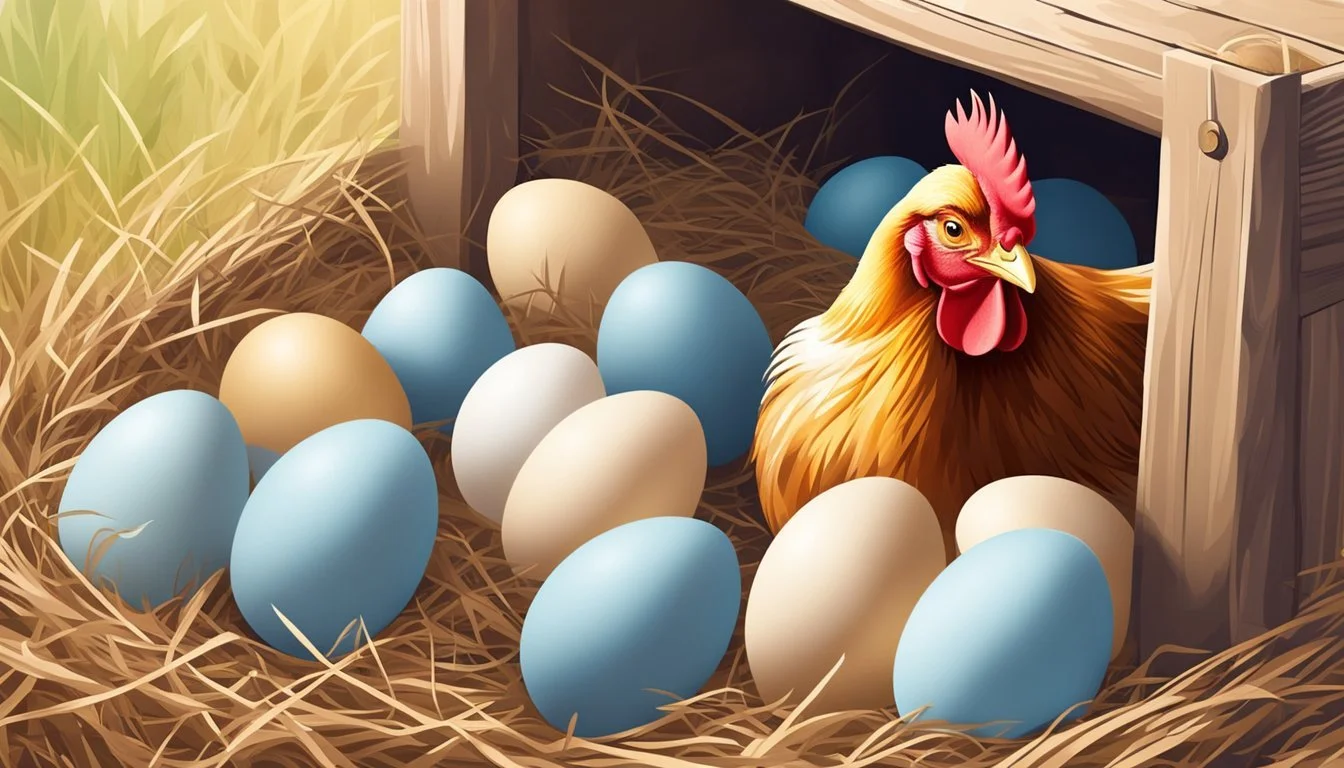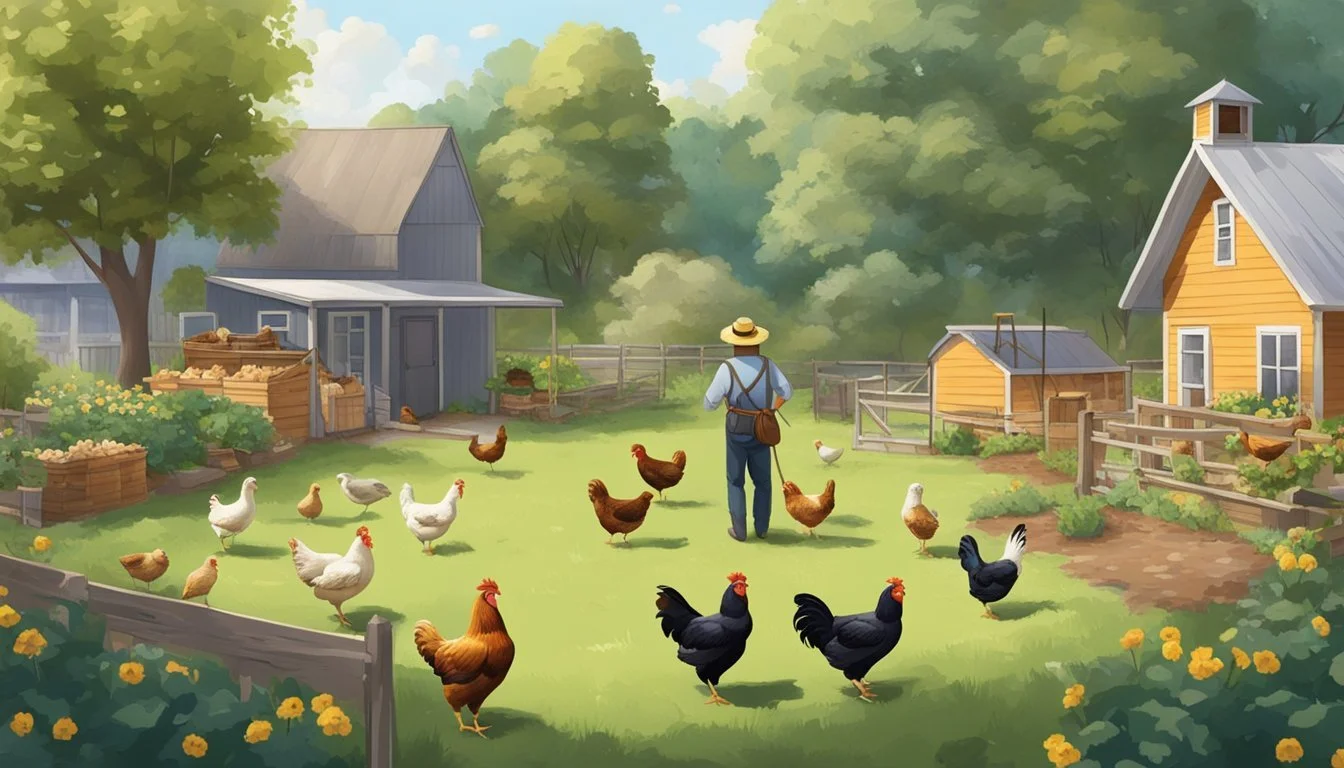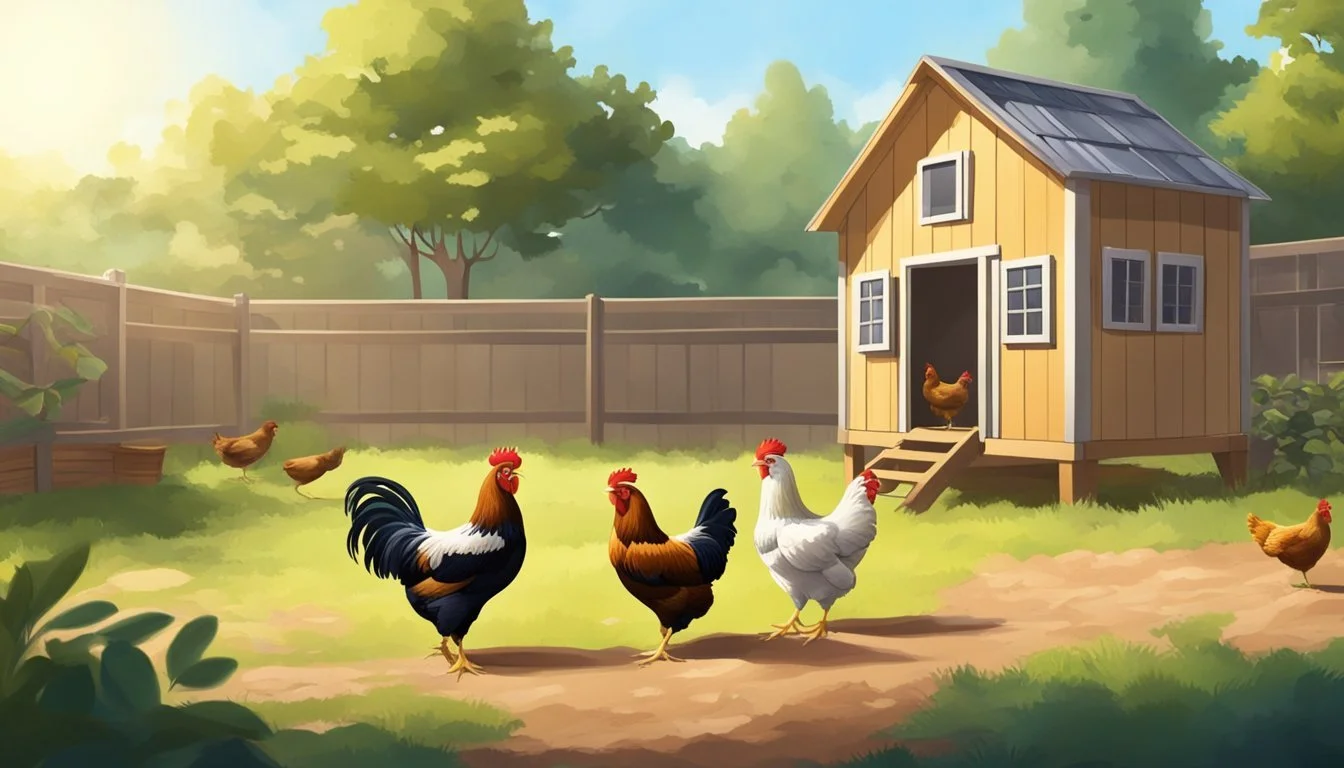Raising Backyard Chickens in Dalton, GA
Your Ultimate Guide to Urban Poultry
Raising backyard chickens has become increasingly popular as people seek to enhance their self-sustainability and connect with their food sources. Residents of Dalton, Georgia, have shown interest in this trend, leading to discussions about local ordinances regarding the keeping of hens. In the past, the city of Dalton had strict regulations prohibiting residents from keeping farm or game animals, including chickens, within city limits. However, changes in community attitudes and a push for more urban agricultural practices have prompted the city to reconsider its stance on backyard poultry.
The potential shift in Dalton's ordinances reflects a broader movement in Georgia, where many municipalities are assessing their policies on urban livestock. While the city is considering the possibility of allowing up to seven hens, specific regulations regarding coop placement, the number of birds allowed, and care standards are likely to be implemented. With the growing desire to raise chickens for eggs, companionship, and garden benefits, it is crucial for prospective poultry keepers in Dalton to stay informed about the latest developments in local laws.
Understanding Local Chicken Laws
In Dalton, Georgia, local government policies determine the legalities of raising backyard chickens. Knowledge of zoning classifications and specific restrictions is crucial for compliance with state and city regulations.
Zoning and Restrictions
The City of Dalton maintains zoning laws that impact the keeping of backyard chickens. It is essential for residents to consult the local zoning restrictions to verify whether their property is classified for agricultural uses or if it falls under residential zoning where different rules may apply.
Residential Areas: Typically, limitations exist on the number of chickens and the prohibition of roosters due to noise considerations.
Agricultural Zones: These areas may have more lenient rules on the number of animals allowed.
Ordinances and Regulations
Local ordinances in Dalton govern the keeping of farm animals, including chickens. Residents must adhere to the following:
Livestock Prohibition: It is generally illegal to keep livestock, including various farm animals and fowl, within city limits.
Exceptions may exist through specific ordinances or policy amendments.
Number of Chickens: There may be stipulations on the maximum number of hens permitted.
Historical consideration for an ordinance allowing up to seven hens within city limits indicates evolving regulations.
The City of Dalton actively reviews and updates these ordinances, making it vital for residents to stay informed about current laws and regulations via official city communication channels or direct contact with city officials.
Choosing the Right Chicken Breed
Choosing the right breed is essential for anyone looking to raise backyard chickens in Dalton, GA, as different breeds have varying temperaments, egg-laying capacities, and adaptability to the local climate.
Characteristics of Common Breeds
When determining which chicken breeds are suited for backyard flocks in Dalton, GA, potential poultry enthusiasts should consider breeds that are known for their ability to thrive in the local climate. Australorps are an excellent choice for those seeking prolific layers, as they are capable of laying over 250 brown eggs a year and are known for their docile nature, making them easy to manage and suitable for families.
Leghorns are another favorable option, especially for beginners, as they are considered hardy and can lay a significant number of large eggs. Their resilience makes them well-adapted to a variety of conditions.
For those interested in egg color variety, breeds like the Lohmann Brown can provide an engaging egg basket with eggs in colors such as blues, browns, white, green, and speckled hues. This breed is also noted for its high productivity, laying over 300 eggs per year.
Breed Egg Color Egg Count/Year Temperament Australorp Brown Over 250 Docile Leghorn White High Hardy Lohmann Brown Various Over 300 Productive
Heritage and Specialized Breeds
For enthusiasts looking to raise chickens with a focus on preservation and breed diversity, heritage breeds offer an intriguing choice. These breeds often have historical significance and offer a range of qualities from good foraging ability to strong maternal instincts. Silkies, known for their unique appearance and friendly disposition, are often embraced by those looking for a pet-like breed that enjoys interaction with humans.
Heritage breeds may not lay as many eggs as industry-standard breeds, but they contribute significantly to genetic diversity and can adapt well to the backyard setting. For those in Dalton, GA, these breeds can bring an element of tradition and uniqueness to their flock.
It's important for future chicken keepers to research heritage and specialized breeds, as they may have specific care requirements that differ from more common backyard chickens. Successful raising of these breeds often stems from understanding and meeting their unique needs.
Designing and Building a Chicken Coop
When embarking on the journey of raising backyard chickens in Dalton, GA, a well-designed chicken coop is crucial for the health and safety of the livestock. It must be clean, accessible, and well-ventilated to ensure a thriving environment for the chickens.
Coop Location and Security
Location is paramount in coop construction. Ideal coop placement includes:
High ground to prevent flooding.
Sunlight exposure for warmth and to keep the area dry.
Proximity to electricity for lighting and heating, if necessary.
Security is equally vital to protect chickens from predators common in Dalton. Security measures include:
Solid fencing: at least 6 feet high with a 1-foot underground barrier to deter digging.
Sturdy locks: on doors to prevent raccoons and other clever predators from gaining access.
Wire mesh: covering windows, with small enough gaps to prevent snakes and small predators from entering.
Essential Features for Coops
A functional coop requires specific features:
Ventilation: Proper airflow prevents respiratory issues. This can be achieved through:
Windows and vents: positioned for cross-ventilation but shielded to block draft.
Nesting boxes: Provide one box per 4-5 hens, with dimensions roughly 12"x12"x12".
Chickens also require space to roost and exercise. Space recommendations include:
Perches: 2 inches wide and spaced 12 inches apart.
Outdoor run: 10 square feet per chicken to prevent overcrowding and stress.
A well-planned chicken coop ensures happy, healthy chickens, leading to consistent egg production and less maintenance in the long run.
Health Maintenance and Disease Prevention
When raising backyard chickens, maintaining the flock's health and preventing diseases is crucial. It involves consistent healthcare practices and a proactive approach to recognize symptoms of illness, ensuring the wellbeing of the livestock.
Essential Healthcare Practices
Backyard chickens require regular and thorough care to remain healthy. Owners should prioritize sanitation and biosecurity measures:
Clean and disinfect coops and equipment regularly to minimize disease spread.
Change water daily and provide a balanced diet to support immune health.
Implement pest control strategies to reduce exposure to parasites and vectors.
Vaccinate poultry against common diseases, where applicable and advised by a veterinarian.
Additionally, maintaining a record of healthcare practices helps track the flock's health status.
Recognizing and Responding to Illness
Early detection of illness in chickens can prevent widespread disease. Owners should be vigilant for signs such as:
Changes in behavior or appetite
Abnormal respiratory sounds or labored breathing
Unusual droppings
Decrease in egg production
They should separate any sick birds and consult with a veterinarian for proper diagnosis and treatment. Following state and CDC guidelines can also help in effectively managing and controlling health risks associated with backyard poultry.
Feeding and Nutrition
When raising backyard chickens in Dalton, GA, understanding proper feeding and nutrition is essential for the health and productivity of your flock. This section outlines specific guidelines and storage tips to ensure your chickens receive the optimal diet.
Feeding Guidelines for Chickens
Chickens require a balanced diet containing essential nutrients such as amino acids, vitamins, minerals, and fiber. Here are the specifics:
Protein: Essential for growth and egg production. Look for feed that includes amino acids like methionine and lysine.
Vitamins and Minerals: Vital for immune system health and bone strength. Necessary vitamins include A, D3, B12, E, and key minerals such as copper sulfate and phosphorus.
Fiber: Aids in healthy digestion which is important for the overall well-being of the chickens.
Feeding programs should be adjusted according to the bird's age:
Starters: High-protein feed for chicks up to 6 weeks old.
Growers: Moderately high protein for chickens from 6 to 20 weeks.
Layers: Feed with increased calcium content for egg-laying hens.
Commercial feed is often the easiest and most balanced option for backyard poultry producers.
Storing and Managing Feed
Proper feed storage is key to maintaining its nutritional value and avoiding waste:
Storage Containers: Feed should be kept in airtight containers to prevent spoilage and protect from pests.
Cool and Dry: Store the feed in a cool, dry place to prevent mold and fermentation.
First In, First Out: Practice rotating stock, using the oldest feed first to ensure freshness.
Effective feed management also ensures that feed is free from contaminants and is of high quality. Careful monitoring of chicken's consumption can also inform whether they are receiving an adequate diet. Regular cleaning of feeders contributes to hygienic feeding practices and overall flock health.
Egg Production and Handling
In Dalton, Georgia, efficient egg production and careful handling are pivotal for backyard chicken enthusiasts. The goal is to ensure a consistent supply of fresh eggs and their safe consumption.
Encouraging Consistent Laying
For laying hens to maintain a steady production, they require a balanced diet, ample daylight, and a stress-free environment. Ideally, hens need about 16 hours of light daily to keep them laying consistently. This can be managed with natural daylight complemented by artificial lighting when necessary. Nesting boxes should be kept clean, dark, and quiet to promote a comfortable laying space. One nesting box for every three to four hens is often recommended.
Diet plays a critical role in egg production. Layers should be fed a high-quality poultry feeder diet, rich in protein and calcium. Supplementing with oyster shell or limestone can be beneficial for shell quality.
Egg Collection and Storage
Eggs should be collected at least once a day to ensure freshness and prevent them from becoming dirty or damaged. After collection, eggs may be stored at room temperature for several days; however, refrigeration can extend their usability up to several weeks. When storing, place eggs with the pointed end down to keep the yolk centered.
Chickens in Dalton may produce eggs that vary in size, and over time, the eggs may increase in size. As egg production naturally declines each year, proper handling and storage become even more crucial for preserving egg quality. It is recommended to wash eggs with warm water and a mild detergent before storing to minimize the risk of salmonella contamination, especially if the eggs are to be consumed by humans.
Community Engagement and Education
When it comes to raising backyard chickens in Dalton, GA, responsible community engagement and education are instrumental. Homeowners need to have clear strategies for managing neighbor relations and forming connections with local poultry communities to ensure a harmonious and informed backyard poultry-keeping experience.
Managing Neighbor Relations
Neighbors' perceptions of backyard chickens can significantly influence local poultry projects. Holding open discussions and sharing informative resources regarding the benefits and management of backyard chickens can help alleviate concerns. Conducting a community poll provides data about neighborhood opinions and paves the way for consensus. An effective practice is to:
Clearly communicate: Share your chicken-keeping plans with your neighbors.
Address concerns proactively: Discuss noise levels, waste management, and how you’ll keep the chickens contained.
Connecting with Local Poultry Communities
Engaging with local poultry enthusiasts fosters a supportive environment for beginner and experienced chicken keepers alike. Joining Facebook groups dedicated to raising chickens enables access to a wealth of shared knowledge and experiences. To reinforce these connections, consider the following steps:
Attend community meetings: Find and participate in chicken-keeping workshops or events.
Seek mentorship: Experienced community members can offer guidance on best practices for raising chickens effectively.
Raising Chickens as a Business
In Dalton, GA, entrepreneurs eyeing the poultry industry can harness opportunities in breeding and selling chickens or marketing poultry products. Focusing on these two aspects can lead to a substantial business initiative, given the city's considerations regarding urban livestock.
Breeding and Selling Chickens
Breeding chickens is a meticulous venture that requires a comprehensive understanding of genetics, poultry health, and market demands. Successful breeders in Dalton target niche markets that value specific chicken breeds, ensuring a constant demand for their birds. They must ensure that their breeding stock is of high quality, which involves:
Selecting robust and healthy chickens with desirable traits.
Implementing strategic breeding plans to produce chickens that meet specific standards or purposes.
In terms of business logistics, breeders need to:
Keep detailed records of flock lineage and health.
Comply with local regulations governing the sale of live animals.
Develop biosecurity measures to prevent disease spread in their flocks.
Marketing Your Poultry Products
Marketing is crucial for any business to thrive, and those selling poultry products in Dalton must:
Identify their target market and tailor their products to meet those customers' preferences.
Create brand awareness through effective advertising and building a strong online and local presence.
Establish transparent and trustworthy relationships with customers, emphasizing the quality and safety of their products.
Businesses can market various poultry products, such as:
Meat from different chicken breeds
Specialty products (e.g., feathers or fertilizing manure)
Product packaging and presentation play a critical role in attracting customers and can set a business apart in the competitive market. Entrepreneurs must stay informed about market trends and preferences to ensure their offerings remain relevant and appealing.
Enjoying Your Flock
Having a backyard flock in Dalton, GA, offers residents a unique opportunity to experience the joys of companionship and the satisfaction of self-sustainability. Chickens, known for their social behaviors, can become appealing companions. Their distinctive personalities and interactive tendencies provide endless entertainment and a sense of connection for their owners.
Daily Interactions Regular engagement with chickens helps in forming a bond. Observing their behaviors as they roam the yard, scratch for insects, and take dust baths can be a delightful experience. Owners often find joy in these simple daily routines, such as:
Feeding: Chickens eagerly anticipate meal times, which can be a fun interaction for both owner and flock.
Egg Collection: The act of gathering fresh eggs provides a tangible reward for caring for one's backyard chickens.
Learning Opportunities Maintaining a backyard flock in Dalton also brings educational benefits. Owners learn about:
Animal behavior and social structure within the flock.
Nutrition requirements and ideal feeding practices.
Health maintenance and the prevention of common poultry diseases.
Community Involvement Sharing knowledge and experiences can lead to a sense of community among local backyard chicken enthusiasts. Dalton's regulations allow for responsible rearing of hens, which can pave the way for community events, coop tours, and poultry-related activities.
Environmental Contributions A backyard flock contributes to a sustainable lifestyle by providing:
Natural pest control as chickens forage for insects.
A source of fertilizer through their waste, aiding in garden fertility.
Keeping a backyard flock is not only about the utility but also the companionship and fulfillment it brings to owners in Dalton, GA. With responsible care, they can enjoy the multi-faceted benefits that chickens offer.

